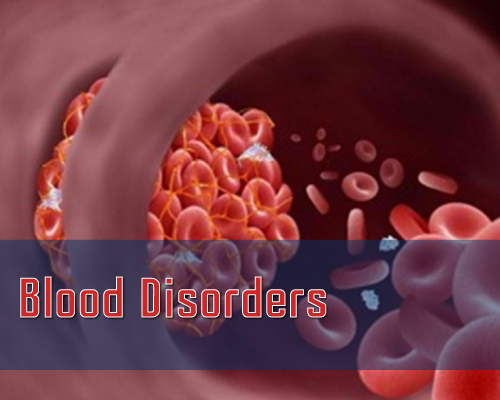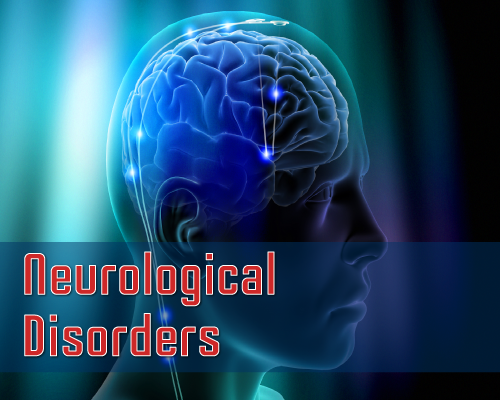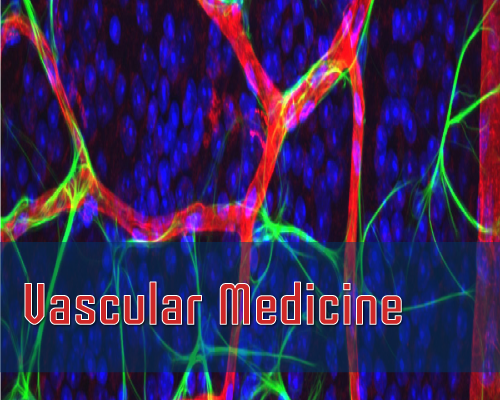Castillo Natalia1, Austin Andrew2 and Freeman Jan George1,2*
1College of Medicine, University of Central Florida, Florida, USA
2Liver Unit, Derby Teaching Hospitals NHS FT, Derby, UK
*Address for Correspondence: Jan Freeman, Royal Derby Hospital, Derby DE22 3NE, United Kingdom. Tel: +44-1332-787231; Email: j.freeman115@btinternet.com
Dates: Submitted: 06 August 2017; Approved: 21 August 2017; Published: 23 August 2017
Citation this article: Natalia C, Andrew A, George FJ. Hepatic Encephalopathy and Foreign Accent Syndrome: a Case Report. Int J Hepatol Gastroenterol. 2017;3(1): 038-040.
Copyright: © 2017 George FJ, et al. This is an open access article distributed under the Creative Commons Attribution License, which permits unrestricted use, distribution, and reproduction in any medium, provided the original work is properly cited.
Keywords: Foreign Accent Syndrome (FAS); Hepatic Encephalopathy; Spontaneous Bacterial Peritonitis (SBP)
Abstract
Foreign Accent Syndrome (FAS) is a rare phenomenon where speech is characterized by a new accent to the patient’s native language. The majority of cases which have been previously described are associated with observed insults of the speech center. Other cases have been related to a psychiatric illness. In this particular case, we present a 62-year-old male with hepatic encephalopathy and FAS. FAS subsequently resolved following the management of Spontaneous Bacterial Peritonitis (SBP).
Introduction
Foreign Accent Syndrome (FAS) is a rare motor speech disorder in which speech alterations cause patients to be perceived as non-native speakers of their mother tongue [1]. In some reported cases, the accent varies between geographical variants of the same language. The new accent is foreign to both the speaker and listener [2]. The first case was described in 1907 in a Parisian man who began speaking with an Alsatian accent after sustaining an intracerebral hemorrhage [3]. In 2010, Verhoeven and Marien [4] classified FAS into three distinct types: neurogenic (most common), psychogenic and mixed type. The most common causes of this speech disorder include cerebrovascular disease, traumatic brain injury, multiple sclerosis, neurodegenerative diseases, mental disorders, brain tumors, and deep brain stimulation [5-8]. This article presents a new case of FAS in a patient with hepatic encephalopathy, a combination that has not been reported to date in the medical literature.
Case
A 62-year-old socially isolated man with an established diagnosis of alcoholic cirrhosis (biopsy proven), was admitted as an emergency with acute alcoholic hepatitis and ascites. His alcohol intake was 280grams of alcohol per day and, despite previous medical advice, he had been consuming alcohol at this level for the past 15 years. He was unemployed but had previously worked as an engineer in a local factory for 10 years. He had no other risk factors for chronic liver disease and an a non-invasive liver screen had been negative
Physical examination revealed deep jaundice with multiple cutaneous manifestations of chronic liver disease. Gross ascites was present and it was subsequently determined that the patient had spontaneous bacterial peritonitis - SBP (ascitic fluid polymorph nuclear cells >250/mm3). His laboratory investigations were compatible with the clinical diagnoses. Initially, his confusion and behavior were thought to be related to alcohol withdrawal and the patient was treated appropriately with chlordiazepoxide, vitamin B complex and thiamine together with co-amoxiclac for SBP. However, his condition deteriorated and he became comatose (grade IV hepatic encephalopathy was suspected).
Computed Tomography (CT) brain imaging demonstrated mild cerebral atrophy, but no evidence of any acute brain injury. Blood ammonia was significantly elevated and Electroencephalogram (EEG) was compatible with hepatic encephalopathy. As he improved, it was noted that he was speaking with a profound Scottish (Glaswegian) accent including Scottish colloquialisms, which despite Glasgow being in the United Kingdom is a very different form of speech to English. His encephalopathy fluctuated over the next two weeks. The patient had no local relatives, thus the staff presumed him to be from Glasgow. Continued treatment with a combination of antibiotics, lactulose and zinc supplementation led to the resolution of encephalopathy His speech changed to a local Derbyshire accent. It became apparent that the patient had lived in Derby, England all of his life barring the first few months as a baby, which he had spent in Glasgow. This was later confirmed by a distant relative who visited him who also informed us that he had never returned to Glasgow after moving to Derby. We believe this is the first case of foreign accent syndrome occurring in hepatic encephalopathy.
Discussion
Foreign accent syndrome is a rare speech pathology that presents with an accent perceived to be different from the native accent by the listener and speaker. FAS is caused from damage to the processes involving articulation. Since 1907, there have been over 60 reported cases, mostly associated with left hemisphere lesions such as stroke or traumatic brain injury [9,10]. FAS has also been linked to other etiologies such as metastatic breast carcinoma, multiple sclerosis and migraines [7,8]. Characteristics of FAS may involve changes in the pronunciation of words, syntax, and vocabulary, as well as changes in the length of the vowels and tenses. It is also important to recognize that other subtle changes include accents from foreign countries or varying regional dialects. However, patient with FAS have rarely visited the country and region their accent resembles.
Although the exact mechanism is unclear, neuroimaging has shown damage in the left frontal lobe, lower parietal lobe, basal ganglia and frontal white matter [11]. Blumstein and Kurowski, [12] proposed that the syndrome results from damage to the speech output motor system (dominant hemisphere) affecting the primary motor cortex and corti-cortical or corti-subcortical projections, which play an important role in language production. In a review of 16 cases of FAS, both cortical and subcortical processes were found to be involved [13]. The cerebellum has also been involved in the formation of FAS. Therefore, there is no clear lesion which can explain FAS consistently. Currently in the literature, there is only one reported case of foreign accent syndrome following acute encephalopathy in a 41-year-old right handed woman in the presence of anti-glutamate receptor antibodies [14]. It was hypothesized that FAS was a temporal phenomenon resulting from imbalance in language processing rather than a specific deficit.
Encephalopathy denotes an overall brain dysfunction initiated by organic and inorganic causes. In liver failure, the accumulation of harmful metabolites that are normally eliminated by the liver may provoke the observed neurological symptoms observed in hepatic encephalopathy. Although the pathophysiological mechanisms are not completely understood, it is widely recognized that ammonia is a key factor in the pathogenesis [15]. Ammonia is transported along the bloodstream crossing the blood-brain barrier, where is it is taken up by astrocytes and intracellularly condensed with one glutamate molecule to form glutamine [6]. The increased levels of glutamine lead to an increase in osmotic pressure in the astrocytes resulting in cell swelling, leading to brain edema and increased intracranial pressure [17]. Encephalopathy can be precipitated by infection such as SBP, as described in our case. Other potential findings include excitation of network activity revealed by imaging of the basal ganglia of encephalopathic patients. The basal ganglia, as previously described, has been found to be an area affected in FAS. However, neuroimaging, neuropsychological and speech pathology assessments, as well as formalized linguistic analyses, may be warranted to clarify further cases.
Conclusion
Foreign accent syndrome has remained obscure despite almost a century of study. Our case describes FAS and its reversal after treatment of acute hepatic encephalopathy, the first reported in the literature. FAS can involve multiple pathways of the complex motor speech network and its relationship with liver failure and hepatic encephalopathy have not been described to date. In liver failure, the normal detoxification of ammonia to urea is impaired altering cerebral function that may include areas described by neuroimaging of patients with FAS. FAS continues to be a rare phenomenon that needs to be further elucidated but as it is subtle in nature may be commoner than appreciated in hepatic encephalopathy.
References
- Berthier ML, Roe Vellve N, Moreno-Torres I, Falcon C, Thurnhofer-Hemsi K, Paredes-Pacheco J, et al. Mild Developmental Foreign Accent Syndrome and Psychiatric Comorbidity: Altered White Matter Integrity in Speech and Emotion Regulation Networks. Front Hum Neurosci. 2016; 10: 399. https://goo.gl/QdAL4P
- Kurowski KM, Blumstein SE, Alexander M. The foreign accent syndrome: a reconsideration. Brain Lang. 1996; 54: 1-25. https://goo.gl/rj1p7z
- Bhandari HS. Transient foreign accent syndrome. BMJ Case Rep. 2011; 2011. https://goo.gl/jZsM9x
- Verhoeven J, Marien P. Neurogenic foreign accent syndrome. Articulatory setting, segments and prosody in a Dutch speaker. Journal of Neurolinguistics. 2010; 23: 599-614. https://goo.gl/H8ENCj
- Verhoeven J, Marien P, Engelborghs S, D'Haenen H, De Deyn P. A foreign speech accent in a case of conversion disorder. Behav Neurol. 2005; 16: 225-32. https://goo.gl/HY1Hh1
- Abel TJ, Hebb AO, Silbergeld DL. Cortical stimulation mapping in a patient with foreign accent syndrome: case report. Clin Neurol Neurosurg. 2009; 111: 97-101. https://goo.gl/koDAfq
- Lippert-Gruener M, Weinert U, Greisbach T, Wedekind C. Foreign accent syndrome following traumatic brain injury. Brain Inj. 2005; 19: 955-8. https://goo.gl/R4KUnu
- Chanson JB, Kremer S, Blanc F, Marescaux C, Namer IJ, de Seze J. Foreign accent syndrome as a first sign of multiple sclerosis. Mult Scler. 2009; 15: 1123-5. https://goo.gl/XesUhr
- Verhoeven J, Marien P. Change of dialect after stroke: a variant of foreign accent syndrome. Eur Neurol. 2007; 58: 191. https://goo.gl/KUtUcq
- Cohen DA, Kurowski K, Steven MS, Blumstein SE, Pascual-Leone A. Paradoxical facilitation: the resolution of foreign accent syndrome after cerebellar stroke. Neurology. 2009; 73: 566-7. https://goo.gl/4qLpMK
- Liu HE, Qi P, Liu YL, Liu HX, Li G. Foreign accent syndrome: two case reports and literature review. Eur Rev Med Pharmacol Sci. 2015; 19: 81-5. https://goo.gl/DZQywT
- Blumstein SE, Alexander MP, Ryalls JH, Katz W, Dworetzky B. On the nature of the foreign accent syndrome: a case study. Brain Lang. 1987; 31: 215-44. https://goo.gl/yJSz6F
- Naidoo R, Warriner EM, Oczkowski WJ, Sevigny A, Humphreys KR. A case of foreign accent syndrome resulting in regional dialect. Can J Neurol Sci. 2008; 35: 360-5. https://goo.gl/EfGhY4
- Tokuda N, Kondo M, Kasai T, Kimura A, Nakagawa M, Mizuno T. [A case of pure alexia and foreign accent syndrome following acute encephalopathy in the presence of anti-glutamate receptor antibodies]. Rinsho Shinkeigaku. 2015; 55: 728-31. https://goo.gl/Hi8sWd
- Wijdicks EF. Hepatic Encephalopathy. The New England journal of medicine. 2016; 375: 1660-70. https://goo.gl/ZCQWbn
- Butterworth RF, Giguere JF, Michaud J, Lavoie J, Layrargues GP. Ammonia: key factor in the pathogenesis of hepatic encephalopathy. Neurochem Pathol. 1987; 6: 1-12. https://goo.gl/MtajUY
- Bernal W, Wendon J. Acute liver failure. The New England journal of medicine. 2013; 369: 2525-34. https://goo.gl/NXiiCF
Authors submit all Proposals and manuscripts via Electronic Form!




























